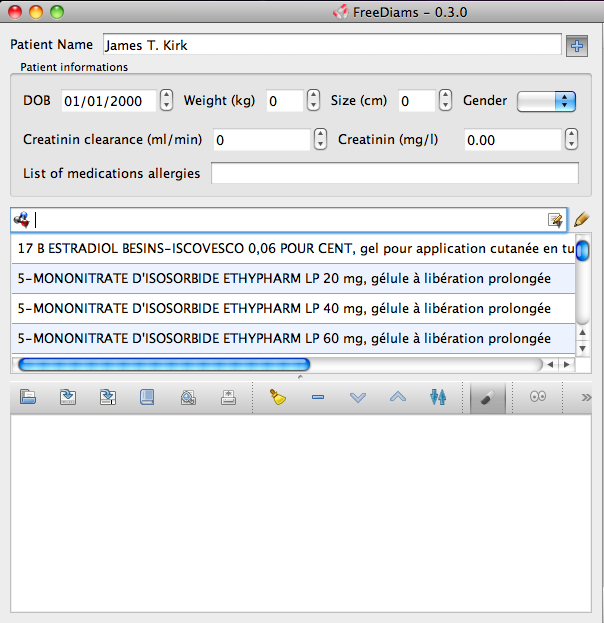[Top][All Lists]
[Date Prev][Date Next][Thread Prev][Thread Next][Date Index][Thread Index]
[Gnumed-devel] Command line FreeDiams
|
From: |
Jim Busser |
|
Subject: |
[Gnumed-devel] Command line FreeDiams |
|
Date: |
Sun, 28 Feb 2010 15:42:34 -0800 |
1) I was able, on Mac OS 10.6x, to get FreeDiams to accept
--patientname
from the command line, but not any of the other parameters (even by
themselves). Is this yet known to work as intended on other *nix or on Windows?
If no, I will file as an issue. If not, what is that required form... is it
<call application> --param1 --param2 --param3 ... ?
*********************************************
2) for GNUmed reference and maybe also FD reference, the method on Mac is not
exactly as per its own help. So, whereas one *does* do
open -a <application name>
the additional Mac shell help on how to pass arguments seems unreliable. The
Mac -W was unable (by me) to be gotten working, except as seemingly redundant
(and unclean, with command line continuation) as part of
open -W FreeDiams.app --args --patientname="James Kirk"
So... except for the part about --patientname being the only argument
successfully passed (screenshot), the following is what worked:
open -a FreeDiams.app --args --patientname="James Kirk"
*********************************************
3) the argument would not work, if passed as "-" (single hyphen) ... it needed
"--". If that is the required method on all platforms, then we need updating at:
http://ericmaeker.fr/FreeMedForms/di-manual/ligne_commandes.html
> If you want to call FreeDiams from a console (the
> commandline) you say this:
>
> $> freediams
>
> If you want to tell FreeDiams the name of the patient you say this:
>
> $> freediams --patientname="James T. Kirk"
>
> Now, GNUmed does nothing else :-)
>
> - it checks whether there is an active patient
> - it retrieves the active name thereof (say, James T. Kirk)
> - it creates a string 'freediams --patientname=' + '"James T. Kirk"'
> - it hands that string to a library function called os.system()
> - that function knows how to start an application
>
> This is a very coarse interface (for example it does not
> allow for a two-way interaction) but being very high level
> it will work on many platforms. Also, it is entirely
> sufficient for the purpose.
>
> The next step would be using exchange files:
>
> $> freediams --input-file=gnumed2freediams.txt
> --output-file=freediams2gnumed.txt
>
> GNUmed would need to create gnumed2freediams.txt and fill it
> with data in a predefined format and start FreeDiams.
> FreeDiams would read it and act according to it. FreeDiams
> would then create output-file and fill it with data
> according to a pre-defined format and quit. GNUmed would
> read it and act according to that ...

| [Prev in Thread] |
Current Thread |
[Next in Thread] |
- [Gnumed-devel] Command line FreeDiams,
Jim Busser <=
